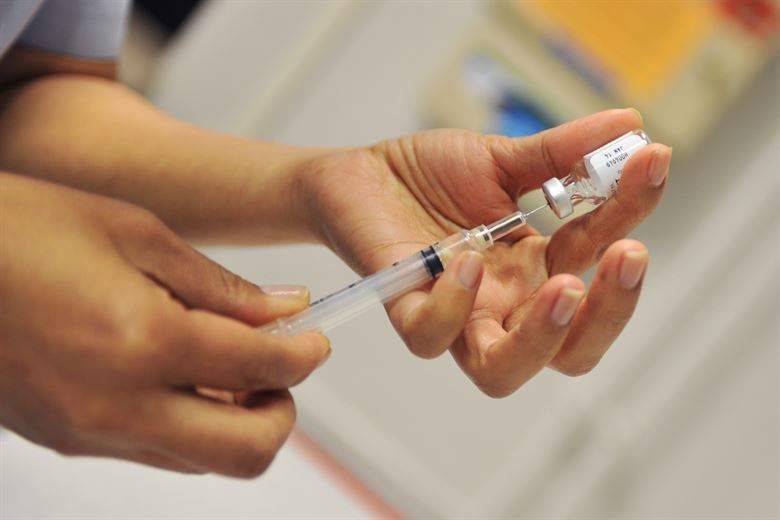
The US National Institute of Allergy and Infectious Diseases (NIAID) has announced plans to develop a universal vaccine for influenza, providing durable protection against multiple forms of the illness for patients of all ages.
According to the World Health Organisation (WHO), inter-pandemic influenza causes between three and five million cases of severe illness and between 250,000 and 500,000 deaths globally each year.

Discover B2B Marketing That Performs
Combine business intelligence and editorial excellence to reach engaged professionals across 36 leading media platforms.
The plan builds on a NIAID workshop from June 2017 titled Pathway to a Universal Influenza Vaccine, attended by around 150 experts from academia, industry and government. The workshop helped to define the necessary criteria for the vaccine’s development, identify knowledge gaps and delineate research strategies.
These details were later published in the Journal of Infectious Diseases, which defined a target for a universal flu vaccine as 75% protection against symptomatic disease caused by group 1 and group 2 influenza A viruses lasting 12 months in all populations.
Every year new seasonal influenza vaccines are made according to predicted upcoming strains. However the hemagglutinin (HA) protein — the main antigen of the influenza virus — has a high level of plasticity and can mutate rapidly, causing antigenic drift and a necessity for regular updates to the vaccine. As such, the development of more durable and broad treatments is crucial in effectively reducing public health risks.
NIAID officials said that recent advances in influenza virology, immunology and vaccinology have made the development of a universal influenza vaccine more feasible than a decade ago. Researchers will focus their efforts on improving understanding of influenza transmission, the natural history and pathogenesis of influenza infection, characterising how protective influenza immunity occurs and how to tailor vaccination responses to achieve it; and supporting the rational design of universal influenza vaccines, including designing new immunogens and adjuvants to boost immunity and extend the duration of protection.

US Tariffs are shifting - will you react or anticipate?
Don’t let policy changes catch you off guard. Stay proactive with real-time data and expert analysis.
By GlobalDataNIAID went on to say that iterative clinical testing will be a crucial component of its plan. A consortium of scientists will be set up to help reach set goals for the vaccine’s development, allowing for improved animal models of influenza infection and expanding the capacity for human challenge studies. The importance of an effective collaboration between experts from various fields has been stressed by the study’s authors, involving people from government, academia, philanthropies and the private sector.
Under NIAID, the Icahn School of Medicine at Mount Sinai is working on an influenza vaccine that will target the conserved stem domain of the HA.
“Universal influenza vaccines need to target the conserved parts of the virus that do not change much over time,” Icahn’s associate professor of microbiology Dr. Florian Krammer said.
“A vaccine that has to be given only two to three times in a lifetime will be much better accepted than a vaccine that has to be given every year, so it is likely that vaccination rates would reach a very high level. In addition, the current vaccines are not included in childhood vaccination programs in low and middle income countries, because it is too expensive and complicated to give them every year.”
NIAID is not alone in its search for a universal flu vaccine, with Oxford spinout company Vaccitech currently trialling a vaccine candidate with the NHS. Launched in October 2017, the trial has recruited 826 people for its first phase and is due to open for new participants later this year.
Existing influenza vaccines are problematic as they typically include parts of the virus’s outer shell, requiring annual modification to match the constantly changing virus. Vaccitech’s vaccine uses a different method of treatment, stimulating the patient’s immune system and boosting the production of influenza-specific T-cells that kill the virus as it tries to spread. Previous studies found that these T-cells recognise core proteins in the virus that do not change annually, allowing for a treatment that can target multiple forms of influenza.
“An influenza vaccine that gets around the flu virus’s ability to alter its outer shell season-by-season would be a huge step forward in saving lives, and indeed would make a major contribution to the sustainability of the NHS and health services around the world,” said Oxford University’s director of primary care and vaccines clinical trials unit Professor Chris Butler.
Researchers are examining the new vaccine’s efficacy when administered at the same time as existing vaccines in people over 65. Current vaccines show 30-40% effectiveness in patients of this age group, due to their weaker immune systems.





